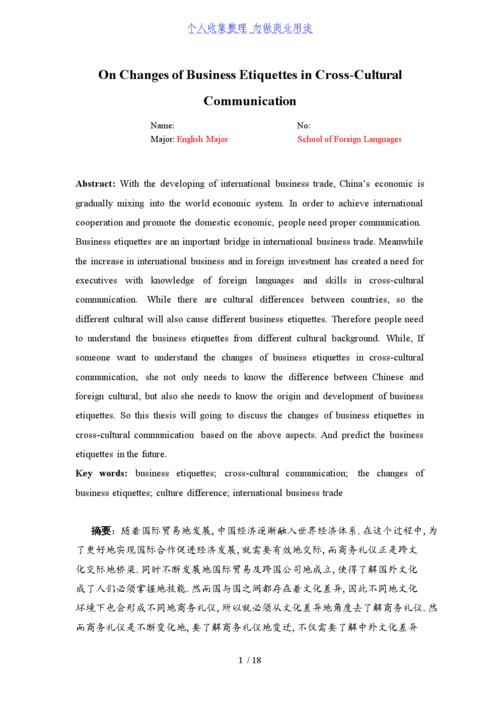The Role of English in the International Legal System

In today's globalized world, English has become the dominant language for communication in many fields, including law. This trend raises important questions about the role of English in the international legal system. This paper will discuss the advantages and disadvantages of using English as the language of international law and offer some suggestions for policymakers on how to balance the benefits of English with the need for linguistic diversity.
Advantages of English as the Language of International Law
One of the main advantages of using English as the language of international law is that it is widely spoken and understood. English is the official language of many international organizations, such as the United Nations and the World Trade Organization, and is also used as a working language in many countries. This makes it easier for legal professionals to communicate and collaborate with colleagues from different countries, which can help to promote international cooperation and understanding.
Another advantage of using English is that it is a flexible language that can adapt to different legal systems and cultures. English has a rich vocabulary and a complex grammatical structure, which allows legal professionals to express subtle distinctions in meaning and convey complex legal concepts. Moreover, English has absorbed many legal terms and expressions from other languages, such as Latin and French, which gives it a global reach and makes it easier to translate legal documents into many different languages.
Disadvantages of English as the Language of International Law
Despite its many advantages, there are also some disadvantages to using English as the language of international law. One of the main criticisms of this trend is that it can create linguistic barriers for nonnative speakers who may struggle to understand or participate in legal proceedings conducted in English. This can lead to unequal access to justice and reinforce existing power imbalances between Englishspeaking countries and the rest of the world.
Moreover, the dominance of English in international law can also erode linguistic diversity and cultural heritage. Many languages and legal systems around the world have developed unique legal concepts and terminologies that cannot be easily translated into English. By favoring English as the language of international law, policymakers may unwittingly undermine the richness and diversity of legal traditions in other countries.
Suggestions for Balancing the Benefits of English with the Need for Linguistic Diversity
To balance the benefits of English with the need for linguistic diversity, policymakers need to adopt a more nuanced and flexible approach to language use in the international legal system. They should recognize that English is an important tool for promoting international cooperation and understanding, but also acknowledge the need for linguistic diversity and cultural sensitivity.
One way to achieve this balance is to promote multilingualism in legal proceedings and documents. This means ensuring that legal professionals have access to translation and interpretation services in multiple languages and that legal documents are available in a range of languages. This can help to reduce linguistic barriers and enable legal professionals from different countries to collaborate more effectively.
Another way to promote linguistic diversity is to encourage the development of legal terminologies in different languages. Policymakers should work with legal professionals and linguistic experts to develop standardized legal terminologies and concepts in different languages, which can help to enhance legal clarity and precision and facilitate communication between legal professionals from different linguistic backgrounds.
Conclusion
In conclusion, while English has played an important role in the international legal system, it has its advantages and disadvantages. Policymakers should strive to balance the benefits of using English as the language of international law with the need for linguistic diversity and cultural sensitivity. This will require a nuanced and flexible approach that recognizes the importance of multilingualism and the need to develop legal concepts and terminologies in different languages. By doing so, the international legal system can become more inclusive and diverse, and better serve the needs of all legal professionals and stakeholders around the world.
